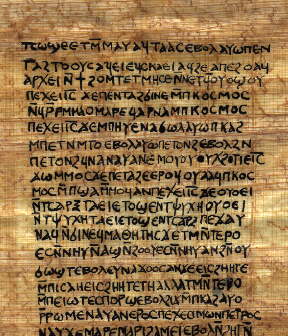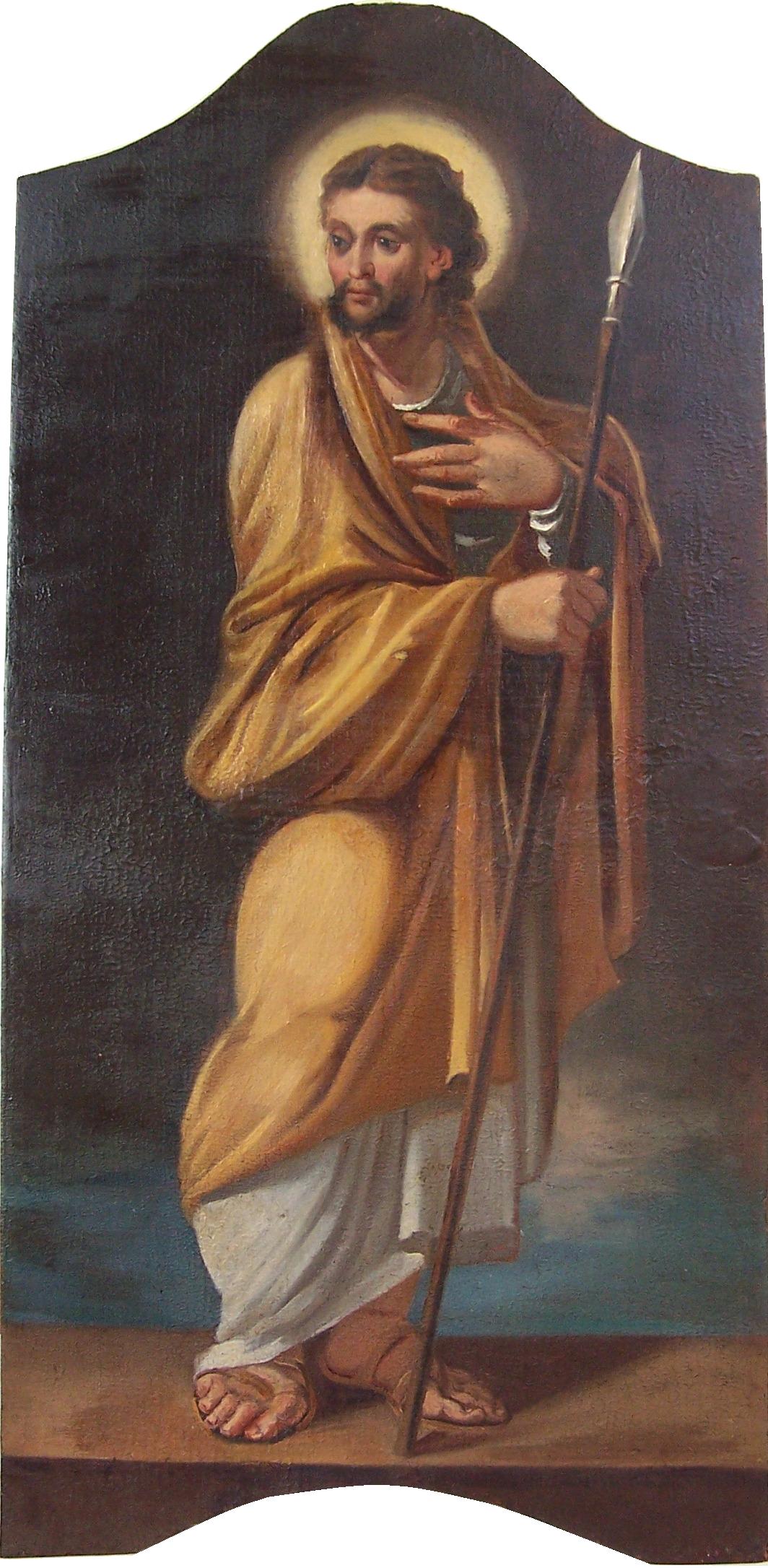Thomasines on:
[Wikipedia]
[Google]
[Amazon]

 The Thomasines were a Christian sect that originated in the first or the second century who especially revered the apostle Thomas and who originated the
The Thomasines were a Christian sect that originated in the first or the second century who especially revered the apostle Thomas and who originated the

gospel of Thomas
The Gospel of Thomas (also known as the Coptic Gospel of Thomas) is an extra-canonical sayings gospel. It was discovered near Nag Hammadi, Egypt, in December 1945 among a group of books known as the Nag Hammadi library. Scholars speculat ...
. The sect held esoteric
Western esotericism, also known as esotericism, esoterism, and sometimes the Western mystery tradition, is a term scholars use to categorise a wide range of loosely related ideas and movements that developed within Western society. These ideas a ...
, mystical
Mysticism is popularly known as becoming one with God or the Absolute, but may refer to any kind of ecstasy or altered state of consciousness which is given a religious or spiritual meaning. It may also refer to the attainment of insight in u ...
, and ascetic
Asceticism (; from the el, ἄσκησις, áskesis, exercise', 'training) is a lifestyle characterized by abstinence from sensual pleasures, often for the purpose of pursuing spiritual goals. Ascetics may withdraw from the world for their p ...
ideas. They have been associated with the proto-Gnostics. However modern critics have disputed their affiliation with Gnosticism, especially because they lack many Gnostic beliefs.
History
According to one view the Thomasines were an early group that questioned the authority of the Jerusalem church and the apostle James, with the Thomasine church beginning around the middle of the first century in Syria.Elaine Pagels
Elaine Pagels, née Hiesey (born February 13, 1943), is an American historian of religion. She is the Harrington Spear Paine Professor of Religion at Princeton University. Pagels has conducted extensive research into early Christianity and Gnost ...
dates the Thomasine community to around the time of the Gospel of John
The Gospel of John ( grc, Εὐαγγέλιον κατὰ Ἰωάννην, translit=Euangélion katà Iōánnēn) is the fourth of the four canonical gospels. It contains a highly schematic account of the ministry of Jesus, with seven "sig ...
’s compilation (AD 70–110), as the Gospel of John appears to contain anti-Thomasine elements and the Johannine community may have splintered off from the same group as the Thomasine.
Other views suppose the Thomasines to be a second century Gnostic
Gnosticism (from grc, γνωστικός, gnōstikós, , 'having knowledge') is a collection of religious ideas and systems which coalesced in the late 1st century AD among Jewish and early Christian sects. These various groups emphasized pe ...
sect.
Community
The Thomasine communities had leaders who through social rules, attempted to manage the process by which new proselytes could come in. They minimized the importance of money and were not expected to have any extra income from what they did not give away. The community had a social attitude of "diligence", where the leader of the community demonstrates a consistent structure for community activities, including labor.Beliefs
Soteriology
For the ThomasinesJesus
Jesus, likely from he, יֵשׁוּעַ, translit=Yēšūaʿ, label=Hebrew/Aramaic ( AD 30 or 33), also referred to as Jesus Christ or Jesus of Nazareth (among other names and titles), was a first-century Jewish preacher and religiou ...
is the Light, who has gone to the place of light and his followers have to try to come to the light by the means of a mystical ascent. The Thomasines saw themselves as children of the light, but the ones who were not part of the elect community were sons of darkness. The Thomasines thus had a belief in a type of election or predestination
Predestination, in theology, is the doctrine that all events have been willed by God, usually with reference to the eventual fate of the individual soul. Explanations of predestination often seek to address the paradox of free will, whereby G ...
, they saw themselves as elect because they were born from the light.
The Gospel of Thomas says to keep the sabbath to be saved, however it is likely a metaphor for inner rest.
The Thomasines had semi-ascetic ideas.
Eschatology
In Thomasine theology the one who seeks the light will have a journey that ultimately ends in "rest". The decision to follow Jesus is critical because the judgement is already being done in the world and the universe could end at any time.Christology
The Gospel of Thomas refers to Jesus as the "son of man" and affirms his Lordship. For the Thomasines, Jesus was too complex to be categorized or given a description. However some passages in the gospel of Thomas possibly indicate Jesus having some divinity.Gnosticism
In the past the Gnosticism of the gospel of Thomas was the common view among scholarship, however modern research has questioned the affinity between Gnosticism and the gospel of Thomas. Many scholars believe that the gospel of Thomas has a Gnostic worldview, but on the other hand many also reject the Gnostic affiliations because they do not seem to have the same Gnostic mythology asIrenaeus
Irenaeus (; grc-gre, Εἰρηναῖος ''Eirēnaios''; c. 130 – c. 202 AD) was a Greek bishop noted for his role in guiding and expanding Christian communities in the southern regions of present-day France and, more widely, for the dev ...
describes and the form of mysticism in the Gospel of Thomas lacks many Gnostic elements. The Gospel of Thomas also appears to support the sanctity of the incarnate life which seems to contradict Gnostic teaching which was used by Paterson Brown to argue that the gospel is demostrably non-Gnostic. According to David W. Kim the association of the Thomasines and Gnosticism are too anachronistic and the Thomasine sect seems to predate the Gnostic movements.
According to Andrew Phillip the Thomasines did not adhere to a form of Gnosticism
Gnosticism (from grc, γνωστικός, gnōstikós, , 'having knowledge') is a collection of religious ideas and systems which coalesced in the late 1st century AD among Judaism, Jewish and Early Christianity, early Christian sects. These ...
, but they still held to strongly esoteric views with apparent Platonic influence.
Other
The Thomasines likely had a form of baptism.References
{{Reflist Christian mysticism